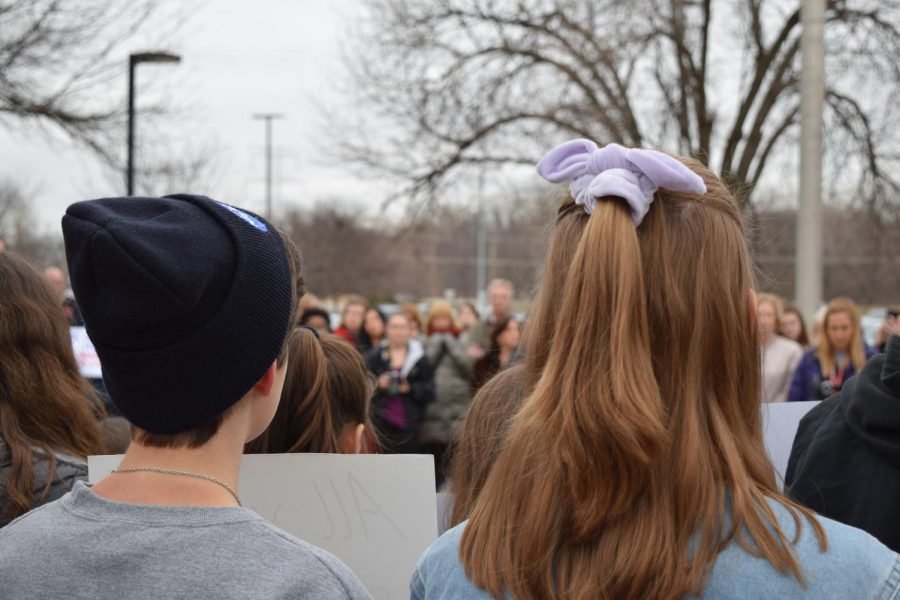You Can Make a Difference
A crowd forms outside of Parkway Central as students rally to speak out in favor of gun control after the 2017 Parkland school shooting. Photo by Debra Klevens.
October 2, 2018
When you’re a high school student, it’s easy to feel powerless to affect change. Politics often seems like a complicated aspect of the fast-paced adult world, far removed from the daily life of a high school student. Teens are surrounded by a media culture that tells them they are lazy, sheltered, and self-obsessed.
In the face of such a demoralizing message, many teenagers do not participate in politics. However, recently the United States has seen a revival in teen political action. Ever since 17 students died in the 2018 Parkland school shooting, young students have been at the forefront of the conversation around gun control.
And the Parkland students are part of a trend of growing political involvement for teens. In fact, a study conducted by The Associated Press-NORC Center for Public Affairs Research found that 71 percent of teens have volunteered, 61 percent have raised money for a cause, and 61 percent have worked to solve an issue in their community. Participation in United States politics is not only beneficial for students, but also extremely important. American society desperately needs to hear the voices of young people, and in many cases, students are doing the work that no other activists can.
Why volunteer? Teenagers who are civically engaged are likely to reap personal rewards. According to the New York Times, “A study, published in January in the journal Child Development, found that late adolescents and young adults who voted, volunteered or engaged in activism ultimately went further in school and had higher incomes than those who did not mobilize for political or social change.”
Kids who are politically active tend to get better grades and make more money; but why? Well, it might have something to do with the skills that political involvement teaches students. According to NPR, activism can play a key role in helping teens develop their identity, express themselves, and feel connected to a group. And after all, that does make sense. Activism is a way for students to advocate for their personal ideas, opinions, core values. This allows them to form a strong sense of self, expressing the unique beliefs that inspire them.
Additionally, the activist community is a vibrant, flourishing group of people. By joining this community, teens can find like-minded individuals who share their morals, and thus a sense of belonging. Teenagers therefore ought to become politically involved simply because it will make them happy, giving them a sense of purpose and of community.
Some may push back against the notion of teenaged political involvement; the phrase “too young to have an opinion” often comes into conversation when the topic is discussed among adults. Yet research shows the opposite. According to The Associated Press-NORC Center for Public Affairs Research, “Civically engaged teens are much more likely to say they have much in common with people with less money than them, with people of different races, of different ethnic backgrounds, with people who live in their community, and to a lesser extent with people in different parts of the country.”
In other words, politically involved teenagers are more empathetic towards others, more accepting and tolerant of diversity. And our world desperately needs that. As political culture in the US becomes more divided and factional, we need kind and open-minded individuals to change the world.
Additionally, teenagers possess internet literacy far more advanced than many adults. Thus, they can confidently and articulately express their views online. As social media becomes more influential, teens have gained an important role in political action and activism. In fact, According to the University of Chicago, “Teens who use Twitter are more likely to take part in a protest (16 percent vs. 8 percent of teens who don’t use Twitter) and express political beliefs online (44 percent vs. 25 percent).” They are the demographic that is most capable of reaching hearts and minds through social media, where so many Americans get their news and information.
For all of these reasons, teens need to get politically involved. The students here at Parkway Central have the power to change the world around them, and can be immensely influential within their communities. It is time for students to stand up for what they believe in.


